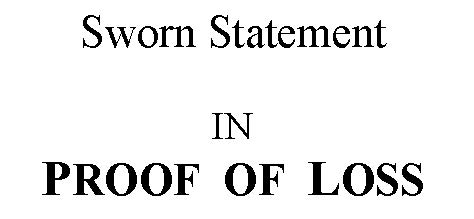I recently defeated an insurance carrier’s Motion for Summary Judgment in Maryland pertaining to an insured’s alleged failure to comply with policy conditions—specifically, failure to file a timely Proof of Loss.
During the claim process, a Proof of Loss was requested, and the insured provided the carrier with everything he had to substantiate the claim except for the Proof of Loss. Despite having everything but the Proof of Loss, the carrier issued a denial letter citing failure to comply with policy conditions due to the failure to timely provide a proof of loss.
Maryland is not a prejudice state (i.e., a state where the carrier does not need to show prejudice when arguing an alleged failure to comply with policy conditions). Substantial compliance with proof of loss provisions by the insured is all Maryland law requires.1 When an insured acts diligently and in good faith in disclosing information to a carrier, proof of loss provisions are liberally construed in furtherance of the indemnity contemplated by the parties.2
Aside from the question of substantial compliance, the carrier’s Motion for Summary Judgment cited the following policy language:
3. Duties In The Event Of Loss Or Damage
a. You must see that the following are done in the event of loss or damage to Covered Property:
(7) Send us a signed, sworn proof of loss containing the information we request to investigate the claim. You must do this within 60 days after our request. We will supply you with the necessary forms.
(Emphasis added)
It was undisputed that the adjuster for the carrier never sent the Proof of Loss Forms when he requested the Proof of Loss. The policy explicitly stated the carrier is to supply the forms. A typical insured is not going to know (1) where to obtain Proof of Loss Forms or (2) how to prepare one. Failure to provide the form to the insured hindered the insured’s ability to provide the form and the carrier should not benefit from its own breach of the policy terms.
Lastly, despite Maryland not being a prejudice state, it was also important to alert the judge to the fact that the failure to provide the Proof of Loss did not impact the insurer’s coverage decision whatsoever. In the same letter the carrier sent denying the loss due to the failure to provide a proof of loss, the carrier further denied the loss based on the conclusions of an engineer it hired. Even if the insured had provided a Proof of Loss, it wouldn’t have made a difference to the carrier’s position. The carrier was simply looking to win on a technicality.
The judge’s decision was two-fold, (1) the carrier failed to send the proof of loss forms as required by the policy and (2) there was at least a question of fact whether the insured submitted all documents in support of the claim and substantially complied with the policy conditions.
__________________________________
1 U.S. Fire Ins. Co. v. Merrick, 171 Md. 465, 190 A. 335 (Md. 1937).
2 Id.




